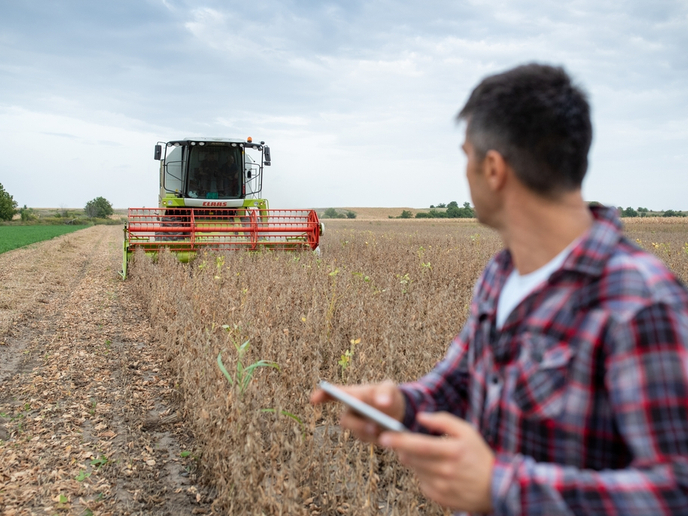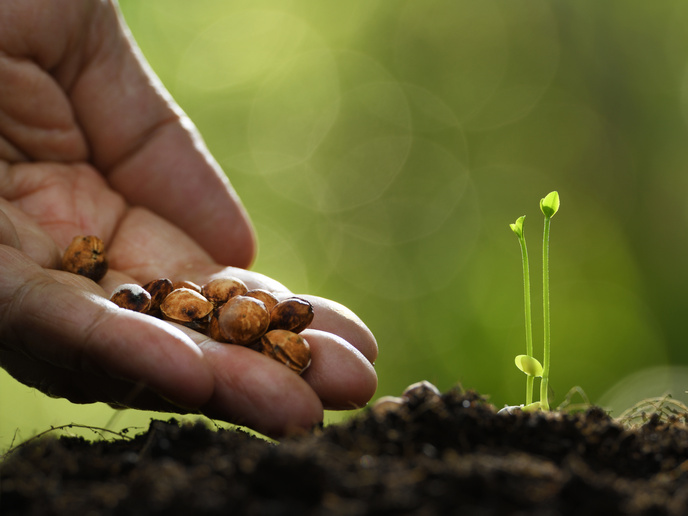Lighting a beacon for precision farming knowledge in Serbia
Until farmers see compelling business reasons for adopting precision agriculture (PA) technologies, they will likely retain their more traditional practices. While much knowledge does exist about the benefits of PA, it has largely been confined to scientific circles. The EU-supported DRAGON (Data Driven Precision Agriculture Services and Skill Acquisition) project has developed PA expertise in Serbia, making information about tools and techniques to help increase their yield and profit while reducing risk available to farmers. DRAGON established a knowledge ecosystem within the BioSense Institute, soon to become a European Centre of Excellence for Sustainable Agriculture and comprising both farmers and researchers, with collaborators from the United Kingdom’s Agri-EPI Centre and Wageningen University in the Netherlands. “Our young researchers became familiar with best practices and precision farming tools, based on big data and data analytics,” says project coordinator Ivana Gadjanski from BioSense, the project host. “Increasing our technical capacity allowed us to position BioSense as a knowledge lighthouse capable of implementing innovations in Serbian agriculture.” DRAGON’s researchers have already published a number of joint papers and collaborated on new projects. They have also developed a massive open online course (MOOC) about big data in agriculture, to be launched on EdX early next year.
A mix of technical and social objectives
Building the right expertise rested on both increased technical understanding of PA amongst researchers, as well as communicating its benefits to farmers. DRAGON helped double in size BioSense’s Center for Information Technologies (CIT) to 28 researchers. The CIT had been set up to apply advanced artificial intelligence (AI) techniques and develop data-driven solutions for agriculture (including soil, crop growth, yields, postharvest, and supply-chain applications) and environmental monitoring (for example pollen or biodiversity), enabling improved decision-making. Through DRAGON, CIT’s researchers benefited from collaboration with experts from partner institutions who introduced them to new tools and techniques. Case studies presented included an exploration of accelerometer-based sensor systems to monitor cattle behaviour and detect health and welfare issues in large herds. Others explored the use of satellites for identifying crops and detecting irrigation problems. Various modelling tools were also introduced for assessing the environmental impact of human behaviour, classifying airborne pollen, plant phenotyping, soil properties analysis and weather data processing. Additionally, the researchers became familiar with genomic tools for plant breeding. “At the start of DRAGON, BioSense was under 3 years old, with enthusiastic but inexperienced young researchers. Today we have a mature research centre developing and implementing advanced solutions,” adds Gadjanski. One such solution is DRAGON’s own suite of data-driven services which includes yield prediction services, satellite crop identification and crop monitoring modules. These may soon be included in BioSense’s AgroSense platform, currently used by over 60 000 people in Serbia.
For local ownership and the next generation
DRAGON also adopted co-creation methods to share knowledge, organising ‘infodays’ and business-to-business meetings for specific stakeholders (farmers, SMEs and start-ups, governmental agencies). Here DRAGON’s researchers gained insights about real-life problems faced by farmers, and the farmers themselves benefited from peer-to-peer knowledge sharing. “This network had high participation from the Serbian agricultural community, who best understand problems specific to their own land and were interested in solutions developed in Serbian,” explains Gadjanski. Informed by feedback from farmers during DRAGON, BioSense has now set up Cropt, a spin-off company for commercialisation of AI-assisted agricultural decision-making. “DRAGON’s overview of data-driven research and innovation, leading to multiscale and multisource interventions, provides a good baseline for new projects,” concludes Gadjanski. “We are currently pursuing satellite-based monitoring of regional agricultural production, phenotyping to monitor crop development and metagenomics for microbiome analysis of soil health.”
Keywords
DRAGON, data, agriculture, crop, satellite, knowledge lighthouse, farmer, phenotyping







